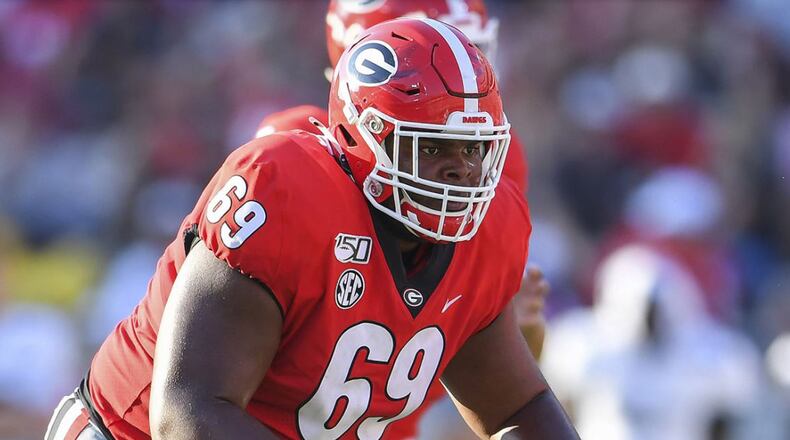ATHENS – The name, image and likeness era in college athletics has arrived. Now schools seek to establish parameters.
Georgia’s new state law enabling amateur athletes to earn money off their image while maintaining their collegiate eligibility went to effect Thursday. The University of Georgia on Thursday sent out separate lists of do’s and don’ts to athletes, fans and employees. Clemson, Georgia football’s season-opening opponent Sept. 4 in Charlotte, did the same.
Most of what is spelled out is common sense. Some of it is limiting. For instance, UGA athletes can’t use Georgia’s famous “Power G” logo or any other trademarks in anything they do.
As for the do’s, Georgia verifies that its athletes now can receive “compensation from a third party” and that it can be in the form of “cash, a cash equivalent (such as gift cards), digital cash transfers, free or reduced-cost products or services, equity in a company and other forms of legitimate compensation in exchange for their NIL or service.” It also stipulated that compensation “must be commensurate with market value.”
Specifically, athletes can promote a business, product or service on their social-media platforms, can participate in autograph-signing events and can sign an item in exchange for goods or services.
Also, that can be paid for appearances, speaking engagements or camps, can enter into contractual relationships and/or hire agents or advisors, as long as they’re disclosed to and registered with UGA.
That’s followed with a list of don’ts, including UGA coaches or staff cannot arrange or facilitate athletes’ NIL activities, NIL deals cannot be offered as inducements for or be contingent upon enrollment, agents and attorneys can’t be retained as representation for professional athletic opportunities and no deals can be made without full disclosure to UGA compliance.
In addition, athletes can’t wear their UGA uniforms, team-issued gear or any of the school’s registered trademarks or logos in any photos or videos. They also can’t use any UGA athletics or campus facilities.
There also are restrictions on any NIL business being conducted that conflicts with team or academic activities, in games or in practices. Athletes can’t endorse alcohol, tobacco, marijuana, gambling or adult entertainment or anything that UGA deems negatively impacts or reflects on the institution. Also, athletes can’t sign or sell their UGA-issued gear.
That hasn’t slowed Georgia football players with their respective roll-outs. Running backs Zamir White (Z3 Chosen One) and Kendall Milton (KM2) each released trademarked logos on Twitter on Thursday and announced partnerships with representation. Milton also was soliciting “personal shoutouts.”
Senior offensive lineman Jamaree Salyer on Thursday announced that he has his own brand “in the works.” But he’s ready to do business. With the qualifier that he would be “keeping football first,” Salyer encouraged potential clients to contact him via direct message to “promote, do commercials, etc. … My DMs are open for business.”
Georgia freshman Jonathan Jefferson, a 2021 signee and early enrollee out of Douglasville, announced the release of his own line of merchandise called “Uno Jon.” It includes $25 T-shirts with his logo on them and $5 silicone wristbands that can be ordered off his website. Apparently, Jefferson has been planning this for a while. Records show he applied for his trademark Dec. 29, shortly after signing with the Bulldogs.
Other marquee football players, such as Georgia quarterback JT Daniels, seem to be taking a wait-and-see approach. Inside locker rooms, there are apparent concerns that the market could quickly become saturated with apparel and merchandise.
Of course, the opportunities aren’t limited to football players. Some other UGA athletes stand to benefit greatly. Georgia sophomore sprinter Matthew Boling, for instance, has more than 945,000 followers on TikTok and another 200,000-plus on Instagram. That’s more than any other Georgia athlete.
Boling has yet to make any partnership announcements.
About the Author
Keep Reading
The Latest
Featured


